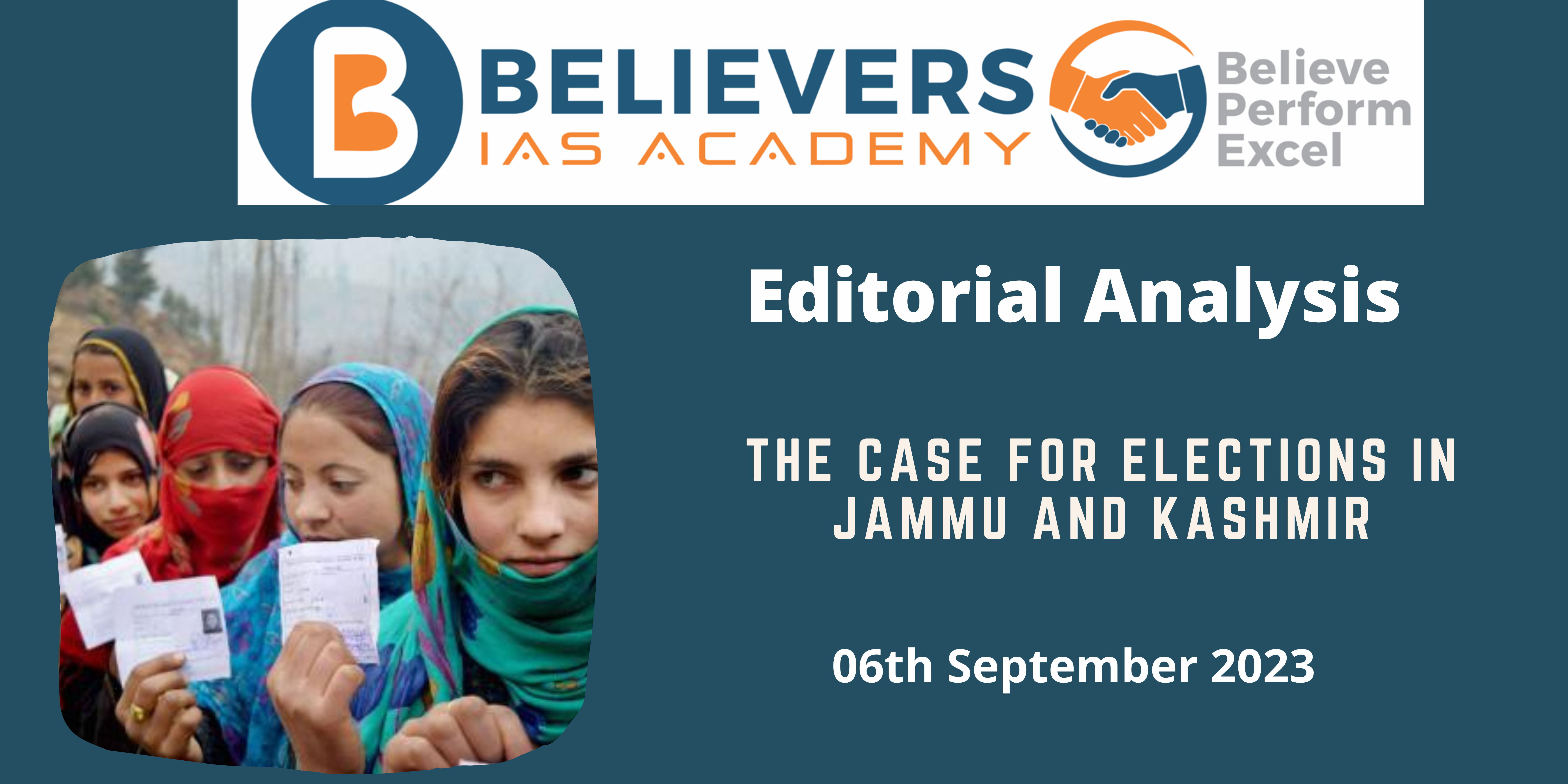The case for elections in Jammu and Kashmir
Context:
The delay in holding Assembly elections in Jammu and Kashmir has raised questions about the democratic process in the region. Despite assurances that the administration is ready whenever the Election Commission of India (ECI) decides, the recent announcement of a committee to look into simultaneous State and Union elections suggests that elections are unlikely to happen soon. This delay has led to concerns about the denial of democratic rights and constitutional obligations.
Relevance:
GS-02 (Government policies and interventions)
Prelims:
- Article 370 and 35(A)
- ECI
- Jammu and Kashmir Reorganization Act, 2019
Mains Question:
- Discuss how issues related to delimitation, demographic changes, and proposed reservations impact the representation and political dynamics in the nation. (150 words)
Dimensions of the Article:
- Challenges in Representation
- Division Versus Confidence-Building
- Way Forward and Conclusion
Challenges in Representation:
- Jammu and Kashmir has not seen legislative elections for nine years. The last Assembly election took place in 2014, and the last elected administration fell in June 2018.
- After a year of President’s Rule, the Jammu and Kashmir Reorganization Act, 2019, divided the State into two Union Territories.
- This Act required a fresh delimitation of constituencies, a process that had been frozen until 2026 but was accelerated for Jammu and Kashmir.
- The recommendations of the Delimitation Commission raised concerns about equal representation, as it allocated most new seats to Jammu, affecting the democratic principle of equal representation.
- Further complicating matters were changes in residency rules that allowed a significant number of new voters to be added to the existing voter pool.
- The expansion of reserved seats and the inclusion of more groups in the Scheduled Tribes and Scheduled Castes categories could exacerbate competition within these categories.
Division Versus Confidence-Building:
- The delay in holding Assembly elections has led to widespread discontent in the region. People are concerned about the shrinking number of their representatives and the potential impact of new reservations on political dynamics.
- Despite these fears, many people in Jammu and Kashmir desire a speedy Assembly election. They believe that elected representatives could address issues such as unemployment and land rights more effectively.
- In Ladakh, where the powers of elected Hill Councils have been reduced, the demand for Statehood is growing. Holding an Assembly election before the year-end could build confidence and stability in the region, as past experiences have shown.
- The 2002 election, held during a period of insurgency, led to 12 years of peace-building. In contrast, attempts to manipulate the 1987 election resulted in a decade of armed conflict.
Way Forward and Conclusion:
- It is crucial to address the concerns and expectations of the people of Jammu and Kashmir regarding Assembly elections. Delaying the democratic process undermines the region’s confidence in the political system.
- To build trust and stability, it is essential to expedite the election process and ensure that it is free, fair, and representative of the diverse population.
- Upholding democratic principles and respecting the aspirations of the people should be at the forefront of the government’s agenda in Jammu and Kashmir.




